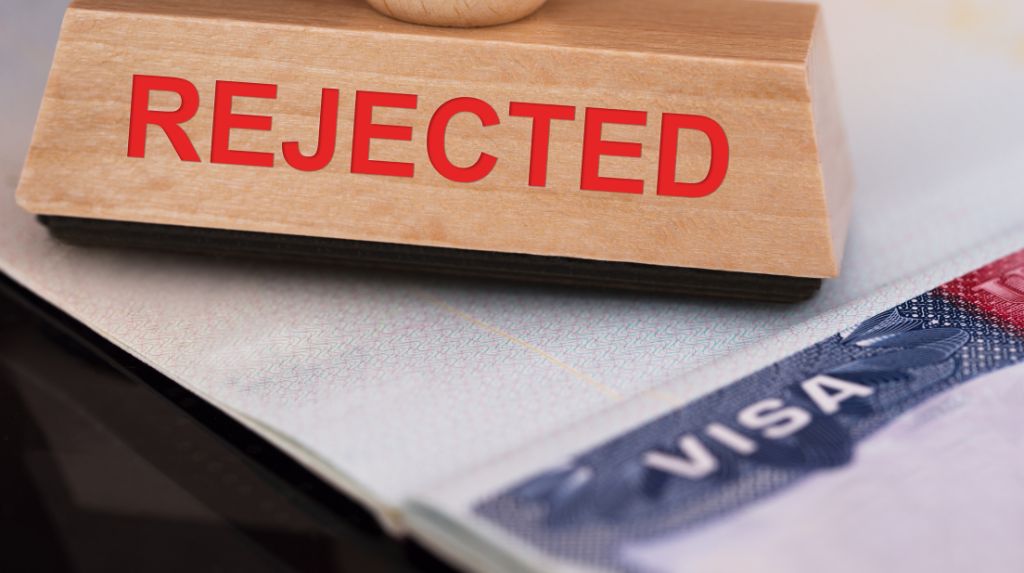If you’re planning to visit the beautiful Emerald Isle of Ireland, you might be wondering about the Irish visa rejection rate and how you can avoid falling into that unfortunate category. In this article, we will delve into the details of the Irish visa application process, the factors that influence rejection, common reasons for denials, and practical tips to increase your chances of approval.
Understanding the Irish Visa Application Process
Before we explore the rejection rate, it’s essential to grasp the basics of the Irish visa application process. Ireland, being a part of the European Union (EU), follows a standardized visa application procedure. The type of visa you require will depend on the purpose of your visit, such as tourism, business, study, or work.
To apply for an Irish visa, you must submit a complete application, including supporting documents, to the Irish embassy or consulate in your home country. The immigration authorities will then review your application and determine whether you meet the eligibility criteria for entry into Ireland.
Factors Influencing Visa Rejections
Several factors can influence the decision to reject an Irish visa application. Understanding these factors is crucial to avoid common pitfalls that lead to denial.
- Incomplete or Incorrect Documentation: Failing to provide all the necessary documents or submitting inaccurate information can result in immediate rejection.
- Lack of Sufficient Financial Means: The Irish authorities want to ensure that visitors can support themselves financially during their stay. Insufficient funds may lead to visa refusal.
- Past Immigration Violations: If you have a history of violating immigration laws, such as overstaying a previous visa or entering the country illegally, your new application might face rejection.
- Failure to Meet Health and Character Requirements: If you have a contagious disease or a criminal record, your visa application may be denied.
Common Reasons for Rejection
- Insufficient Ties to Home Country: The visa authorities need assurance that you have strong ties to your home country, such as family, property, or employment, that will prompt you to return after your visit.
- Inability to Prove Genuine Intentions: You must convincingly demonstrate your genuine purpose of travel, whether it’s for tourism, business, or education.
- Lack of Travel Insurance: Adequate travel insurance is vital for any visit to Ireland. Failure to provide proof of insurance can lead to visa refusal.
- Overstaying Previous Visits: If you’ve previously exceeded the duration of your permitted stay in Ireland or any other country, it may raise concerns about your intentions and adherence to visa regulations.
How to Increase Your Chances of Approval
To improve your chances of obtaining an Irish visa, consider these essential tips:
- Double-Check and Organize Your Documents: Ensure all your documents are complete, up-to-date, and well-organized to avoid unnecessary delays or rejections.
- Demonstrate Strong Ties to Your Home Country: Provide evidence of your commitments and connections in your home country, such as family, employment, or property ownership.
- Show Clear Purpose of Travel: Clearly state the purpose of your visit and how it aligns with the type of visa you are applying for.
- Seek Professional Advice if Necessary: If you find the visa application process daunting or complex, don’t hesitate to seek assistance from an immigration consultant or lawyer.
Dealing with Visa Rejection
Receiving a visa rejection can be disheartening, but it’s essential to handle the situation with patience and understanding. Here’s what you can do if your visa application is denied:
- Understanding the Reasons: Request detailed feedback from the visa office to understand the specific reasons for the rejection.
- Reapplying or Appealing: Depending on the circumstances, you may choose to reapply with a more thorough and improved application or appeal the decision if you believe there was an error.
- Seeking Alternative Travel Options: If your visa is denied, consider alternative travel destinations that do not require a visa for entry.
In conclusion, understanding the factors that influence the rejection rate for an Irish visa is crucial for anyone planning a visit to Ireland. By adhering to the guidelines, preparing a complete and well-documented application, and demonstrating genuine intentions, you can significantly increase your chances of a successful visa approval.
Frequently Asked Questions
What is the processing time for an Irish visa?
The processing time for an Irish visa can vary depending on the type of visa and the volume of applications. It is advisable to apply well in advance of your intended travel date to allow sufficient processing time.
Is there an age limit for applying for an Irish visa?
No, there is no specific age limit for applying for an Irish visa. Eligibility is determined based on individual circumstances and the purpose of the visit.
Can I appeal a visa rejection decision?
Yes, if your visa application is rejected, you may have the option to appeal the decision. However, it’s essential to understand the reasons for rejection and provide substantial new evidence to support your appeal.
Are visa requirements the same for all nationalities?
No, visa requirements can vary depending on your nationality and the type of visa you are applying for. It is essential to check the specific requirements for your country of citizenship.
Can I apply for an Irish visa online?
Yes, in most cases, you can apply for an Irish visa online through the official website of the Irish Naturalisation and Immigration Service (INIS). Make sure to follow the instructions and provide all necessary documents.
Do you need support with your Irish visa application?
Contact our team of skilled immigration lawyers to discuss your visa and immigration needs.
Call us on +234 812 5505 986 or WhatsApp us at +234 818 1547 085 for immediate assistance with your situation. We are available to assist you in person, over the phone, or online.





